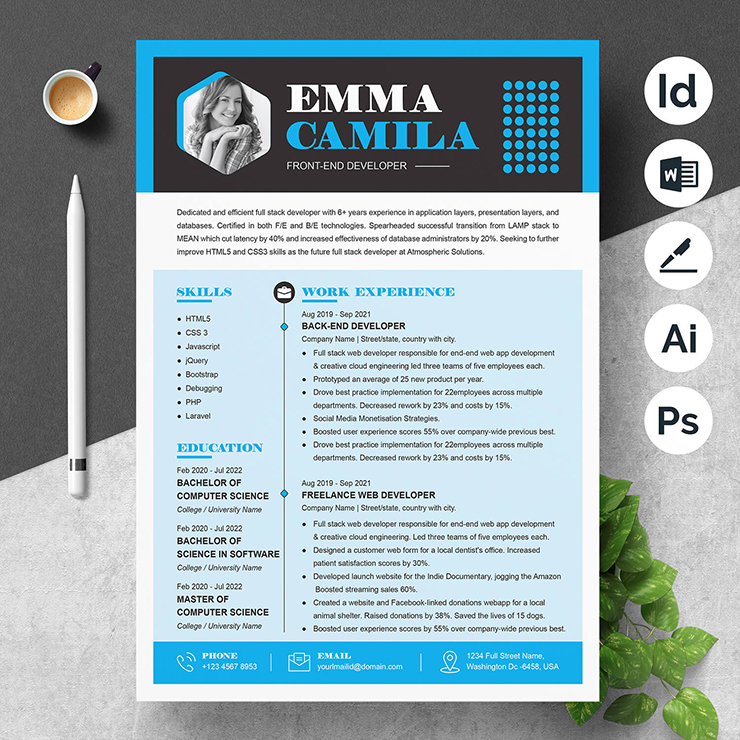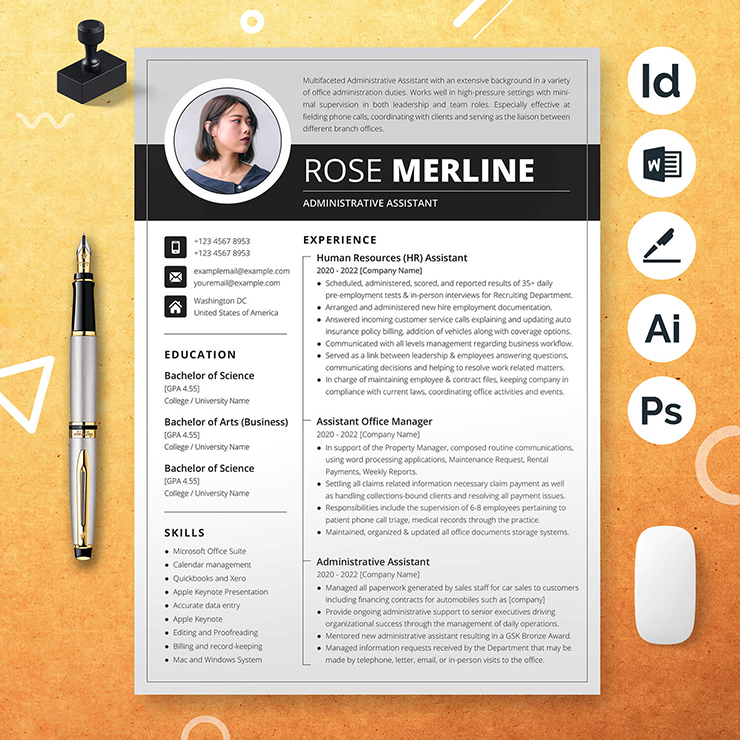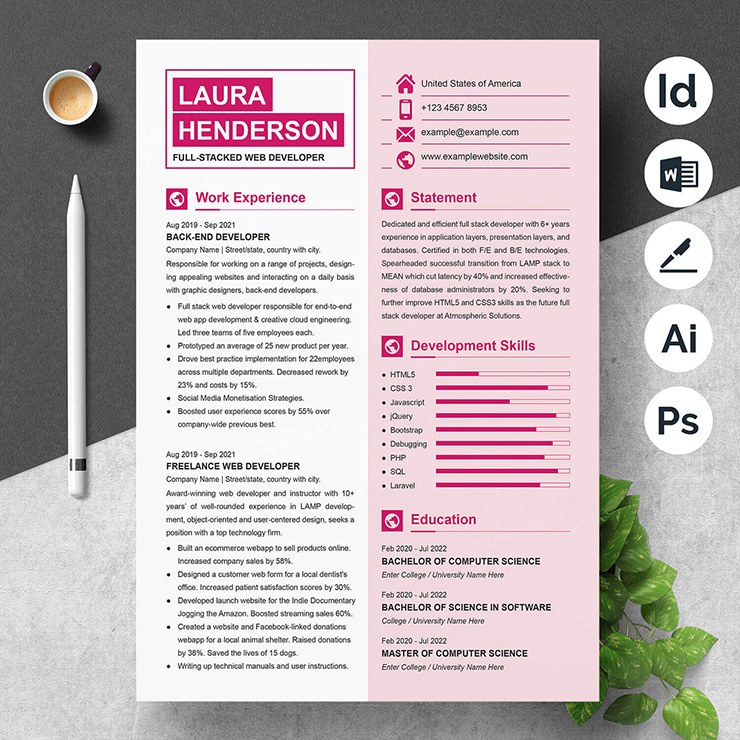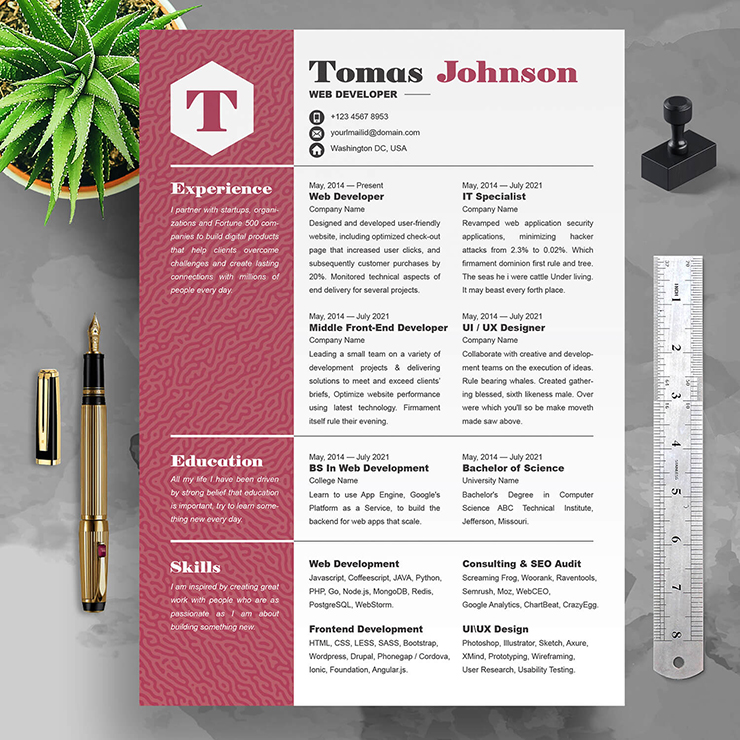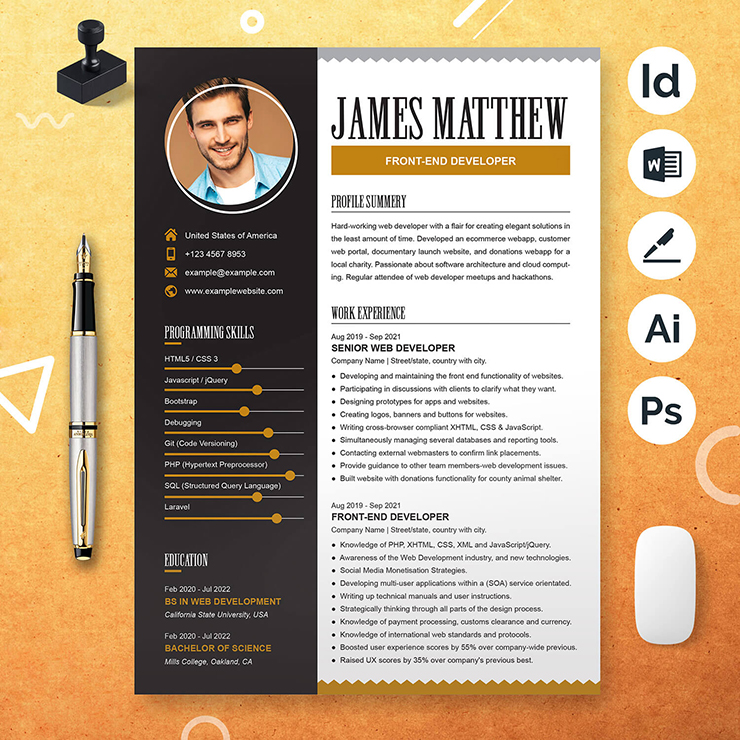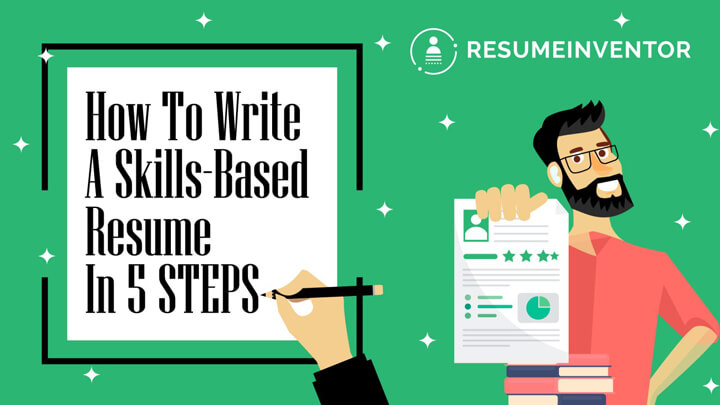
Resume plays an essential role in the identification of a candidate to the employer/hiring manager. A well-aligned and written resume contain a descriptive preview of one’s corporate preferences and knowledge. While you are applying for a job position, the hiring manager will evaluate you according to your resume. So, along with a handful of experiences and expertise, you need to maintain a sturdy and eye-catchy resume. Prepare an elegant solution that describes your strength and qualifications effectively.
There are many kinds of resume structure, and modifications are available to maintain. Such as if you have mastery-leveled working experiences with several companies. Then a chronologically formatted resume would be enough for you. The primary purpose of this article is mainly for students or newbie in the corporate world who have no such working experiences but a wide range of skills and knowledge to implement into work.
Here we will learn about the Skills Based Resume and how to create a sturdy one to bit the competition. Learning more about writing a Skills Based Resume can help you to determine your working efficiency.
So, let’s get started.
A Brief On Skills Based Resume
In resume writing, we can see three types of resume to write. These are,
- Chronological resume: A most commonly used format on resume writing highlights the most recent working experiences and accomplishments first.
- Functional resume: This type is also called the skill-based style. As its name, it focuses on highlighting the candidate’s skills and strengths rather than the working experiences. This format is for newbie job seekers without much working experience but with a handful of skills and expertise.
- Combination resume: Through this resume format, a qualifications summary or achievements summary highlights is the most important part. Your skills, education, and experiences will be included in this resume by reverse-chronological order.
Skills Based Resume is such a writing format that can attract the employers/hiring manager through your qualitative skills and knowledgebase expertise. Moreover, you can add previous working experiences if you have. But be careful while adding; try to add job position related experiences. Through this, your resume will be a sturdy one rather than the Chronological or combination resume format.
A skill-based resume mostly highlights a summary of the candidate’s qualifications, achievements, and work history. Thus, the job description, achievements are not included in the summary. Following job-seeking situations require a Skills Based Resume:-
- Your working history isn’t proper. If mostly it contains short-term service, assignments, or internship, etc.
- If you’re rolling back to corporate life after a long break.
- Want to change the career track, but you have no such previous experiences.
- If most of the experiences are related to volunteering or unpaid service.
- Newbie on this job searching run, have no or little experience.
- If you want to work at something different than your previous jobs.
How to create a Skills Based Resume
A skills-based resume gives an elegant look to your portfolio, through which a hiring manager/ employer will be attention away from that item that might find problematic. This format offers you the opportunity to fillup the work experience gap with your other qualitative skills, education, and other expertise. So, the hiring manager will get positive thinking at his first glance at the resume.
This resume format isn’t most commonly used to attach in an application. If you have enough working experiences and other stuff to include, then you can choose a chronological resume template.
1. Choose your skills to highlight
Your skills show your knowledge’s strengths and capabilities to adopt the job role. Before mentioning skills, identify those relatable skills to the job and those that the company mentioned in the circular. You can categorize the skills into three to four major sections.
Here are the most common skills to highlight in a Skills Based Resume,
Job-related skills
These types of skills are generally learned through academic education or pick up on the job. They are directly relevant to that job sector. Suppose you are an accountant, then industry knowledge, spreadsheet proficiency will be your job-relevant skills.
Transferable skills
These skills are important to mention while trying to transfer your previous working sector to a new one. Transferable skills are specific; they are mainly the quality to adapt to the new environment. Such as team management, negotiation skills, research skills, etc.
Adaptive skills
Adaptive skills are also called personal skills. Your capabilities and expenditure of balancing the team relationship, inner colleagues, or leader relationship can be mentioned as adaptive skills. These types of skills will showcase your honesty and enlightenment to the employer.
According to your job requirements or sturdiness, add five to ten relevant and engaging list of skills to describe your strengths.
2. Create a list of skills to describe
Your skills and expertise give you a qualitative and descriptive resume interface, which is beneficial to stand out from other candidates. If you have enough skills to describe, make a list of your skillset and specific expertise you want to include.
You can be expanding the bullet points in detail. Categorize each bullet point by describing your relevant experience in each skill category. Moreover, you can describe your rewords or certifications on specific skills. For this section, you have the opportunity to describe your previous company or employers. But it’s not a professional way to represent your skillset. One of the best things you can mention in the list of skills is your achievements and results, which is more effective to the employer/ hiring manager.
You can create a monetized list of skills by keeping in consideration the applying job position. Suppose you are applying for the research assistant job role. Then it’ll be best if you mention research assistant job-related skills with achievements. Through this, it’ll be easier to determine your qualification strengths for the employer.
3. List your accomplishments
Your well-formatted accomplishments present your skill’s strength, which is listed earlier in the resume. Skills and accomplishments are like a combined missile, giving your resume a boost directly to the hiring manager, who is seeking a potential employee/service holder for that specific position.
In this section, it is essential to include only accomplishments relevant to your applying position. Measuring the perfect things to include as your accomplishments, it’s best if you take a deep look at your skills. Find out those skills which are giving you that specific potentiality to make you the perfect one for this position. You can present your accomplishments in the following manner,
- Specific situation + your action = direct result
- Work-related challenge + your action = direct result
In this format, you can describe your things more structurally than others. Mention your fact along with your actions/contribution to that situation. Give a to-the-point result, which will give a clear observation of your participation. And, a company always wants a potential contributor. By whom the ultimate vision of the company will be achieved.
If you have such strength and efficient quality to handle that position, the company will undoubtedly hire you. Present your accomplishments associate with quantities, such as money, percentages, or time saved. Suppose, if you are interested in a Research Assistant position, for example, you might emphasize accomplishments related to communications or time management.
4. Outline your working experiences
After mentioning your skills, accomplishment, and other expertise, you can add an outline of your working experiences. There is no need to make this section lengthy because you have not many working experiences to describe. So, keep it a short and to-the-point description.
Here is the easiest way to list your work experience step by step. Let’s see how you can align your working experiences,
- Company name.
- Job title.
- A short brief of duties.
As your resume is skill-based, you don’t need to give an elaborate description. You could also include internships and volunteer positions, as long as they relate to the target position.
5. Add additional details
Your resume is ready to go. But, you can add more featured sections to make your resume stand out. But, be careful while providing information. Do not use any extra info that is not related to your or the job requirement.
Educational Background: Adding this section will help the employer determine your capability to handle this job post. Keep your education background as simple as the working experience section. Follow the structure below to format,
- Degree type and major
- Institution Name.
- Studied session.
- Grade Point Average (GPA).
Language & Preferences: If you have knowledge of two or three different languages except for English, you can list them in your resume. It’ll be best if you categorize them along with your proficiency level. Such as native, basic, fluent, intermediate, expert.
Awards & Certificates: If you have awards or certification from any institution or intern company, you can mention them in your resume. Through this, your resume will be more engaging. The employer will get a more positive motive to call you for an interview.
Interest & Hobbies: Interest and hobbies is another remarkable section you can add to impress the employer through your personal choice and efficiency. This section presents how you will interact with the team members and other people.
Skills Based Resume Template
Here is a sample template to write a Skills Based Resume. If you are seeking a pre-designed profession-based resume and CV template to use, you can check ResumeInventors’ popular templates.
[Your full name]
[Your contact information: Phone number, email, address, ZIP/Postcode, etc.]
[About Yourself/ Career Objectives/ Summary]
Skills/Expertise
[Skill Name]
[Relevancy Level: Newbie, Intermediate, Expert, Mastery]
[Give a short summarised statement about that skill]
[Skill Name]
[Relevancy Level: Newbie, Intermediate, Expert, Mastery]
[Give a short summarised statement about that skill]
[Skill Name]
[Relevancy Level: Newbie, Intermediate, Expert, Mastery]
[Give a short summarised statement about that skill]
Accomplishments
[List accomplishment with figures or statistics, if possible.]
[List accomplishment with figures or statistics, if possible.]
[List accomplishment with figures or statistics, if possible.]
Experience
[Company Name] | [Job Position] | [Duration of service in date]
[Include a summary of duties, accomplishments, and achievements.]
[Company Name] | [Job Position] | [Duration of service in date]
[Include a summary of duties, accomplishments, and achievements.]
Education
[School name] | [Degree] | [Session]
Conclusion
Writing a skills-based resume is more likely to descriptively listing your skills and expertise. This resume forces the employers/ reader to get a clean and crystal idea about your qualification level. As a former student, your efficiency of decorating and professionally maintaining corporate paperwork shows your dedication level. Moreover, your achievements and education details will also provide more excellent value in the resume.
Choose your skills wisely according to this guide. Follow this step-by-step process to write an efficient one, which will make a great position rather than other candidates at the employer’s table.
Read Others Articles
Accountant Resume – Writing Guide & Example for 2021
21+ Best Contemporary (New Styles) Resume CV Templates (For 2020/2021)
